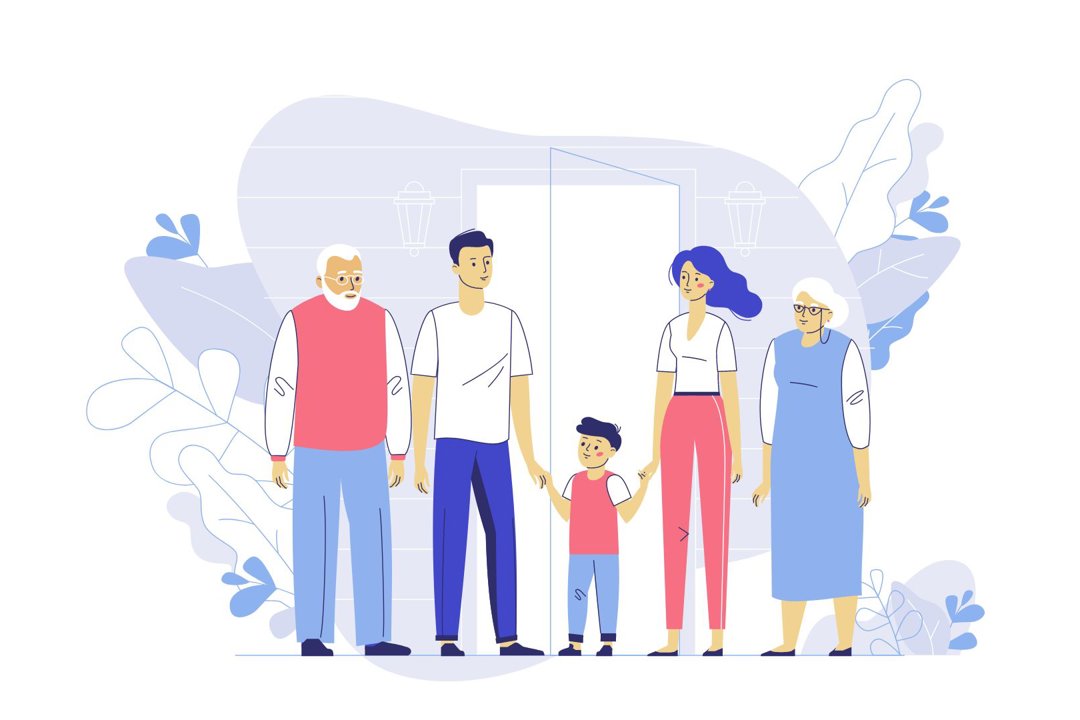
- Patients
Treating and Prescribing to Family, Friends, and Coworkers or Employees
Treating and prescribing to family members, friends, and coworkers or employees should only be done in emergency situations or when other options are not available.
Treating and prescribing to family members, friends, coworkers or employees should be a rare occurrence saved for emergencies and other situations when their health or safety would otherwise be compromised. The professional liability risks in treating close relations and employees or coworkers are the same. The relationship may be intact at the time of treatment, but treating your close relations and colleagues may strain the relationship and blur professional boundaries. When deciding whether to treat these individuals, health care practitioners should consider the following.
Confidentiality With Patients
Employees, coworkers, friends, and family are entitled to the same level of confidentiality and professionalism as all your other patients. The nature of your personal/professional relationship with these individuals may make it more difficult to ensure their protected health information remains private.
Employee/coworker medical information and records are vulnerable to inappropriate disclosure. Other employees who do not have a reason to view records may still have access, despite best efforts to ensure records are available only on a need-to-know basis. Word of mouth may pose a privacy concern, especially if the individual is facing a serious or embarrassing health situation. It may also be more difficult to keep family and friends’ information private if other close relations are concerned or interested in the person’s health status and inquire with you or push for information.
Loss of Objectivity
Emotional involvement in personal relationships may hinder a health care practitioner’s objectivity. Objective medical assessments and treatment plans may be compromised when treating someone with whom you have a close personal bond. Similarly, you may deeply care about an employee or coworker such that it could cloud your judgment. This can result in errors in either direction. Perhaps you order a biopsy, lab tests, and scans to rule out the worst when watchful waiting is clinically indicated. Or, maybe you simply cannot imagine this person having a serious illness, downplay their symptoms, and miss a significant diagnosis.
It may be uncomfortable to perform sensitive exams on someone you work with or with whom you have a personal relationship. The individual might also be reluctant to disclose sensitive information that could have bearing on your treatment plan. Will you be able to maintain a professional relationship in the work environment if such an exam is required of your treatment? Would this create awkwardness in your personal relationship?
Finally, the nature of your personal relationship with the individual may undermine informed consent. They may not feel comfortable refusing care or may be more willing to accept care without a thorough understanding of the risks, benefits, and alternatives because they trust your judgment.
Inappropriate Expectations
Because of your personal and/or working relationship with the patient, there may be inappropriate expectations for the physician/patient relationship. The patient may expect special treatment such as priority for appointments, the ability to call on you at any time for a “curbside consult,” or your acquiescence in their desires/demands for their treatment plan.
You may also feel pressure and have less resistance to doing things you would not do for other patients, such as a “curbside consult” in order to save the patient and yourself the perceived hassle of a full workup. In actuality, it may lead to greater strife if the exam was less in-depth than called for and results in a missed diagnosis.
Ethical Guidelines
The American Medical Association Code of Medical Ethics addresses these situations. Opinion 1.2.1 is titled “Treating Self or Family” and Opinion 10.3 discusses “Peers as Patients.” Essentially, each of these opinions suggest that treating these close relations should only happen in the case of emergency, or when there is no other qualified physician available (e.g., in a rural setting with few health care practitioners). The basis for these ethical guidelines is the impact that a personal relationship might have on objectivity, privacy and confidentiality, open exchange of information, and informed consent.
Similarly, the American College of Physicians (“ACP”) states in its Ethics Manual that treating “people with whom the physician has a significant preexisting, nonprofessional relationship … necessarily adds another layer that may complicate what would become the patient-physician relationship.” It goes on to explain that “the patient may feel unduly restrained in making choices, or inhibited in speaking about certain matters or in rejecting physician recommendations, the physician may be unduly impaired in maintaining clinical objectivity; inadequate history-taking or physical examination, overtesting, inappropriate prescribing, incomplete counseling on sensitive issues, or failure to keep appropriate medical records are also potential issues.” The ACP advises that physicians usually should not engage in these dual relationships.
Statutory and Regulatory Restrictions
Most states including Arizona, Colorado, Utah, and Nevada have laws and/or regulations surrounding treating and prescribing for oneself and their close relations. Physicians, Advanced Practice Registered Nurses, and Physician Assistants should check with their professional licensing boards to ensure they are up to date on these laws and regulations. Violating these laws and regulations may result in disciplinary action by the licensing board. The restrictions generally surround prescribing controlled substances, failing to complete a thorough examination prior to prescribing medication, and providing general medical or surgical treatment for themselves or others with whom they have close emotional relationships.
Suggestions for Treating and Prescribing to Family, Friends, and Coworkers
- Refrain from treating and prescribing to family members, friends, and coworkers or employees unless it is an emergency situation or other options are not available.
- Implement a practice policy and procedure detailing the practice’s stance on treating family members, friends, and coworkers or employees.
- Be prepared in advance to suggest to coworkers or employees and loved ones that they seek care with another health care practitioner and offer recommendations if you have them.
- If you determine it is necessary to provide care to a close relation, do the following:
- Document evaluations, treatments, and recommendations provided to the individual with the same attention to detail as you do for other patients.
- Keep employee medical records in a secure area or under strong electronic privacy protections for confidentiality purposes.
- Avoid prescribing controlled substances, sedatives, or anything potentially addictive except within formal patient-physician relationships and consistent with your typical prescribing patterns.
- Provide every patient with the same level of confidentiality, professionalism, and care.
- Document evaluations, treatments, and recommendations provided to the individual with the same attention to detail as you do for other patients.
The Takeaway
The potential pitfalls of treating family members, friends, and coworkers or employees can lead to a breakdown in your personal relationships, regulatory disciplinary action, and litigation. Even if your care is clinically sound, the dynamics involved in these situations could lead to a rift in a previously intact relationship. Improperly storing patient medical information could cause a HIPAA violation that results in fines. Providing incomplete or biased care to these individuals could cause harm to the patient and lead to long and costly negligence claims with the added layer of an emotional bond that may complicate the defense.
It is best to maintain personal and professional boundaries even when it may seem innocuous to provide care because the consequences if something goes wrong are potentially severe. Reserve treatment of these individuals for emergencies and when no other options exist.

